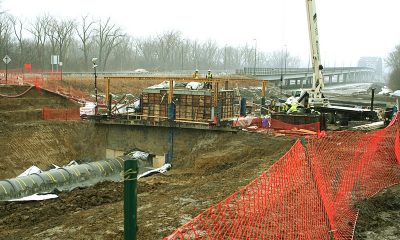Bipartisan legislation is hard to come by these days in Congress, which is why the Sustainable Municipal Access to Resilient Technology in Infrastructure, or SMART Act, may look good at first glance, however; this bill could do more harm than good in terms of moving America’s infrastructure into the 21st century. 
Engineers design, build, and maintain our core infrastructure systems, ensuring public health, promoting economic development and driving resilient design decisions. However, the SMART Act, would instead take those decisions away from licensed engineers and allow the federal government to establish technical requirements related to pipes and other materials. This move takes critical public safety decision making away from engineers and instead creates a concerning precedent.
Every infrastructure system is unique and requires different materials, which professional engineers have the knowledge and expertise to recognize. Unfortunately, this legislation does not respect the engineer’s nuanced decision making and would instead remove them from the consultation process for deciding what materials are used for certain projects.
Sure, plastic pipes may be inexpensive to attain, but down the line, they may lead to increased maintenance and replacement costs if they are not the correct material for a particular project. These decisions can cause higher life-cycle costs and environmental damage or permit violations. One size Intricate engineering decisions cannot be made with a one size fits all approach.
We should leave it up to the community and the professional engineers to make judgments on the best material for stormwater systems, roads, and other infrastructure systems, and trust the professional engineers’ knowledge and expertise. For this reason, historically legislation that has tried to set sweeping standards for “open and fair” competition in the procurement of pipes for federally funded infrastructure projects have failed in Congress. Nevertheless, advocates for this latest legislation claim that the bill will get our water systems, roads, bridges, and dams back into shape. Instead, the bill would do just the opposite, by creating an environment where professional engineers, localities, and states could be sued if they use a type of pipe material that ends up being unsuitable for a project. Therefore, this practice would result in an undue burden for the operating budgets of government agencies and would unnecessarily delay critical infrastructure projects.
Leading engineering and water utility organizations from ASCE, the American Council of Engineering Companies, American Public Works Association, and American Water Works Association to the Water Environment Federation, National Association of Clean Water Agencies, and more – the ones who design and manage the nation’s water systems – have joined together to oppose the SMART Infrastructure Act. This legislation would weaken the role of engineers in the procurement of construction materials, and ultimately undermine the ability of engineers, public works professionals, and local governments to design infrastructure projects that best serves the community.
Last session, similar legislation was introduced in the Michigan legislature, which gave preference to PVC pipe and weakened engineers’ ability to select the best product for water-related projects. Through outreach from ASCE-Michigan members, as well as other organizations, that bill was able to be defeated and illustrates that government officials are listening to the voice of professional engineers.
Ultimately, the selection of materials should remain in the hands of professional engineers, who recognize the products that will best serve his or her community, and unfortunately the SMART Act risks public safety by removing engineers from that decision making process.























































